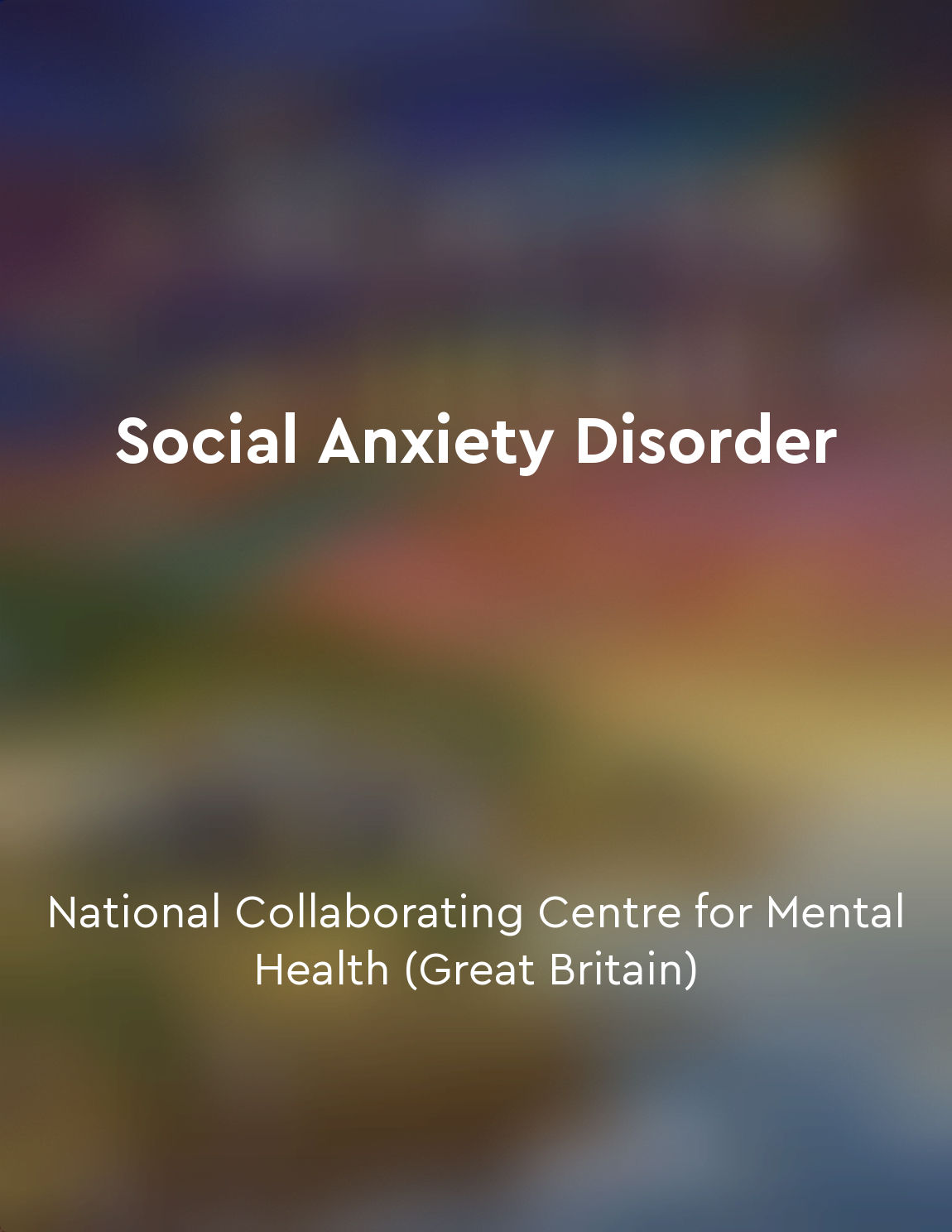It is characterized by intense fear of social situations from "summary" of Social Anxiety Disorder by National Collaborating Centre for Mental Health (Great Britain)
Social anxiety disorder is a mental health condition that is marked by a pervasive and overwhelming fear of social situations. Individuals with this disorder often experience intense anxiety and distress in social interactions, leading them to avoid such situations whenever possible. This fear is not simply a mild discomfort or nervousness, but rather a profound and debilitating terror that can significantly impact a person's daily life. The fear associated with social anxiety disorder is typically focused on being judged or evaluated negatively by others. This fear of scrutiny can manifest in a variety of social settings, from casual conversations with strangers to public speaking engagements. The anticipation of these social interactions can trigger intense anxiety symptoms, such as rapid heartbeat, sweating, trembling, and difficulty breathing. People with social anxiety disorder may also experience a range of cognitive symptoms, including excessive self-consciousness, negative self-talk, and irrational fears of embarrassing themselves in front of others. These thoughts can further fuel the individual's anxiety and lead to a vicious cycle of avoidance and isolation. In addition to the emotional and cognitive symptoms of social anxiety disorder, individuals may also exhibit behavioral signs of the condition. Avoidance of social situations, difficulty making eye contact, and a tendency to withdraw from social interactions are common behaviors seen in those with this disorder. These behaviors serve as coping mechanisms to manage the intense fear and anxiety associated with social situations.- Social anxiety disorder is a complex and challenging condition that can have a profound impact on an individual's quality of life. It is important for individuals with this disorder to seek professional help and support in order to manage their symptoms and improve their overall well-being.


